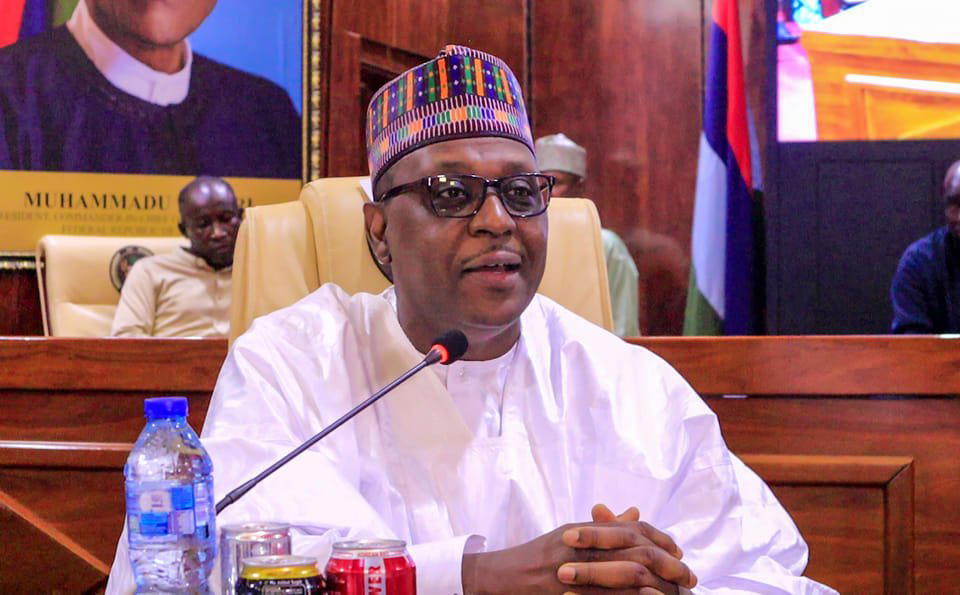FG pledges action on unsafe abortion to cut maternal deaths

The Federal Government has reaffirmed its commitment to tackling unsafe abortion to reduce maternal mortality and improve the health and well-being of women and girls across Nigeria.
Dr Binyerem Ukaire, Director of Family Health at the Federal Ministry of Health and Social Welfare, gave the assurance on Tuesday in Abuja during the International Safe Abortion Conference.
The conference, organised by Ipas Nigeria Health Foundation, was themed “Reproductive Justice: Crashing Maternal Mortality through Reduced Unsafe Abortions” to mark International Safe Abortion Day, globally observed on Sept. 28.
Ukaire, represented by Dr Robert Daniel of the Department of Family Health, said unsafe abortion remains a highly preventable cause of maternal death, yet it continues to claim many lives in Nigeria.
Citing the World Health Organisation (WHO), she defined unsafe abortion as termination of pregnancy by unqualified individuals or in environments that failed to meet minimum acceptable medical standards.
“Nigeria has one of the highest maternal mortality ratios globally, and unsafe abortion continues to contribute significantly,” Ukaire said.
She cited research indicating 456,000 unsafe abortions occurred in Nigeria yearly.
“Globally, 121 million unintended pregnancies occur annually, and 60 per cent of them end in abortion.”
She noted that one in every two abortions worldwide was unsafe, exposing women to serious health complications, long-term damage, and even death, especially in underserved or rural areas.
She explained that women who were poor, uneducated, or living in rural areas were particularly vulnerable due to limited access to contraceptives and quality reproductive health services.
Ukaire emphasised that nearly all deaths and complications from unsafe abortion could be avoided through contraceptive access, legal safe abortion services, and post-abortion care.
She added that the Federal Government was working with partners to train healthcare providers to deliver quality post-abortion care and supported women in need of such services.
She said the ministry had trained skilled birth attendants and improved abortion-related data reporting through the National Health Management Information System (NHMIS), in spite of legal restrictions and societal stigma.
Delivering the keynote, Dr Talemoh Dah, an obstetrician and gynaecologist, said abortion should be recognised as a critical, life-saving health intervention, not just a social or moral issue.
“Abortion has become a social controversy, even though its safety is well-established,” Dah said, highlighting misinformation and stigma that prevented many women from accessing safe care.
He said 45 per cent of global abortions were unsafe, with 75 per cent of those happening in low- and middle-income countries, including many across Africa.
Dah explained that nearly half of Africa’s unsafe abortions occurred under the least safe conditions, contributing to nearly 30 per cent of maternal deaths across the continent.
He noted that an estimated 2.4 million induced abortions occurred in Nigeria every year, equivalent to about 26 for every 1,000 women of reproductive age.
“Unsafe abortion causes roughly 10 per cent of maternal deaths in Nigeria, where maternal mortality remains high at 1,047 deaths per 100,000 live births,” he said.
He stressed that one in every 22 Nigerian women faced a lifetime risk of dying from pregnancy-related causes, compared to one in 4,900 in developed countries.
Dah added that in Nigeria, a woman dies from maternal causes every seven minutes, a shocking statistic reflecting the urgent need for health system reforms.
He identified stigma, legal barriers, unaffordable services, and poor health infrastructure as key challenges contributing to unsafe abortions and maternal deaths.
Also speaking, Dr Lucky Palmer, Country Director of Ipas Nigeria, described unsafe abortion as a major cause of preventable maternal deaths in Nigeria and other developing countries.
“In many communities, abortion is still treated with secrecy, stigma, and shame,” Palmer said, urging a shift in public attitudes and policy frameworks.
He noted that for more than 25 years, Ipas had worked to remove those barriers by documenting real-life stories and advocating for abortion as essential healthcare.
Palmer emphasised that the statistics represented real lives, daughters, mothers, sisters, whose deaths were preventable with access to safe, affordable healthcare services and support.
“These numbers are not just statistics; they are lives worth saving.
“This conference seeks to move abortion from whispers to urgent public health discourse,” Palmer said.
He called for stronger laws, community engagement, and collaboration between the government, private sector, and international bodies to ensure safe abortion services for women.
The News Agency of Nigeria (NAN) reports that International Safe Abortion Day is a global opportunity to raise awareness about safe, respectful, and rights-based abortion as essential healthcare.
The post FG pledges action on unsafe abortion to cut maternal deaths appeared first on Vanguard News.







